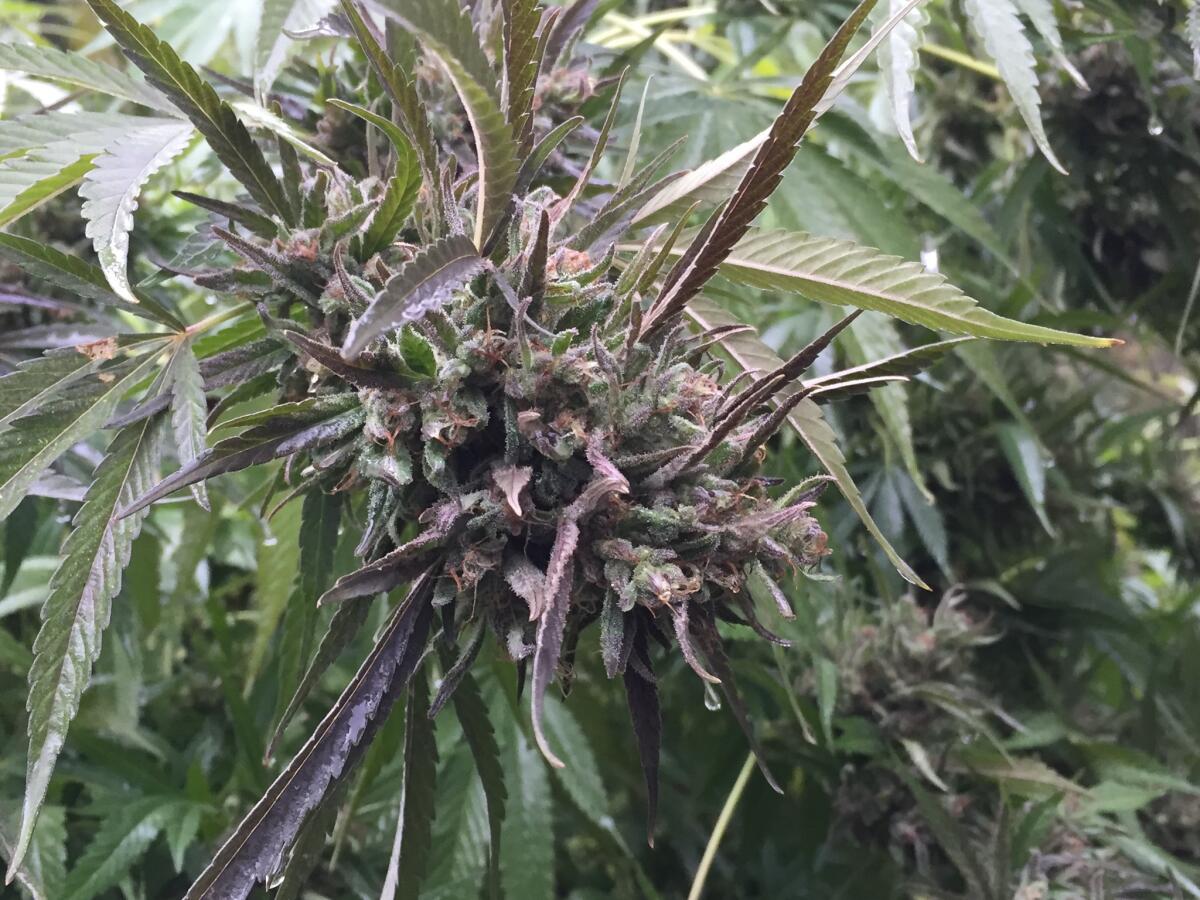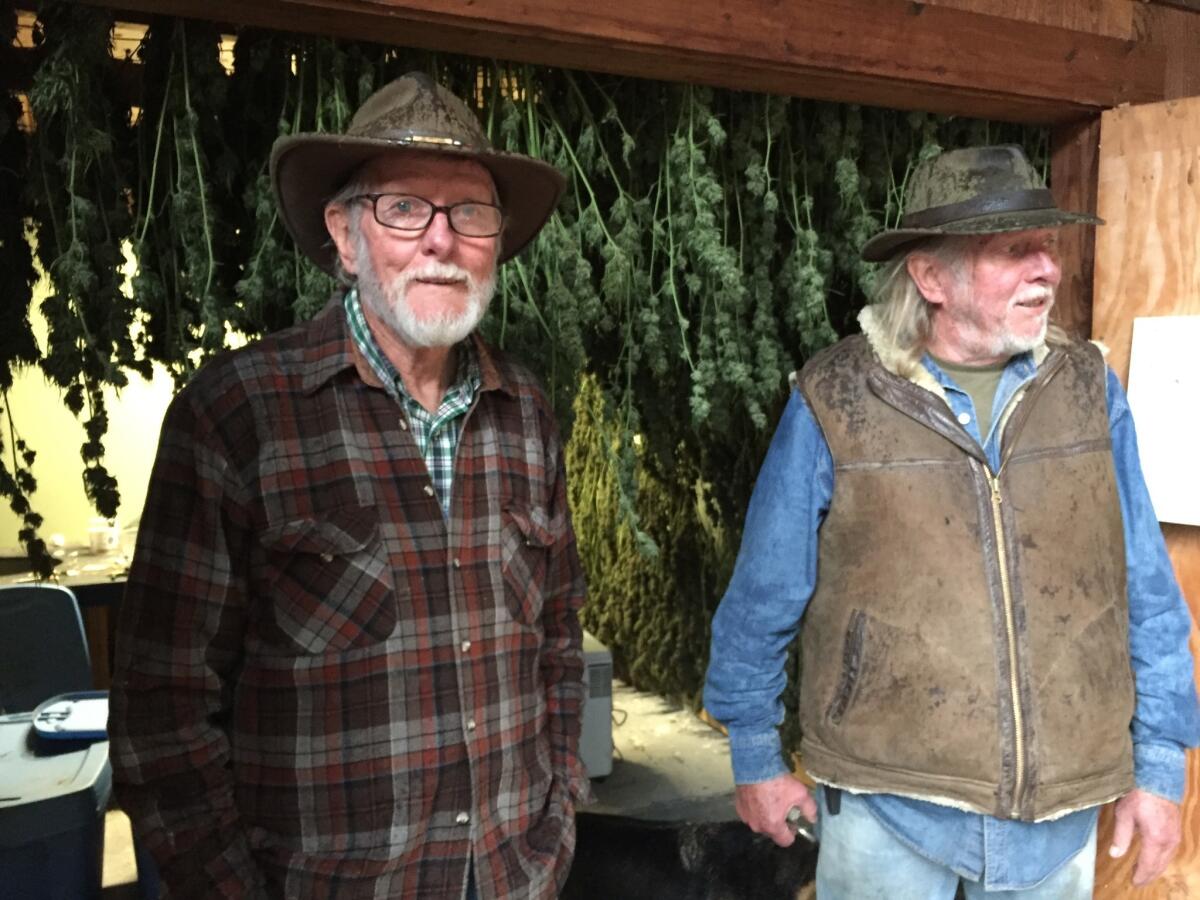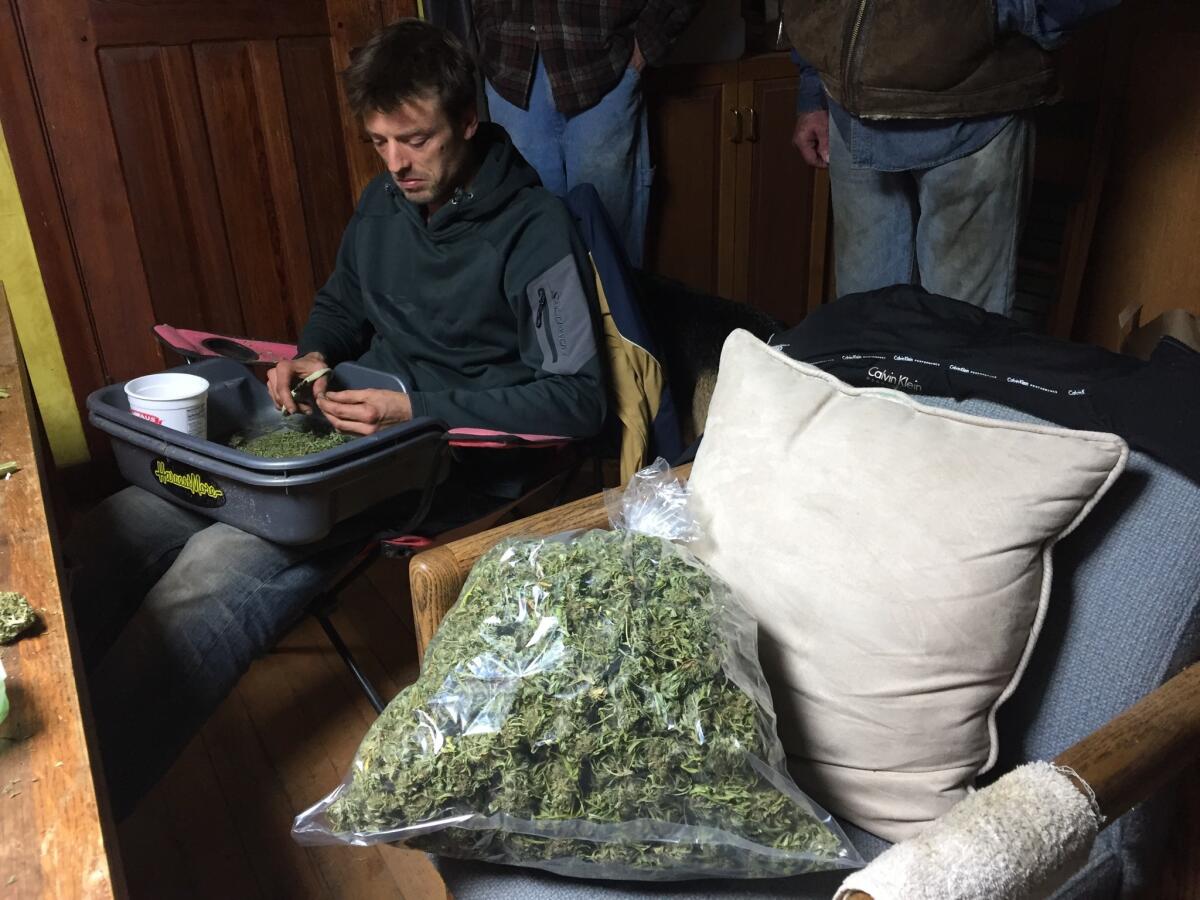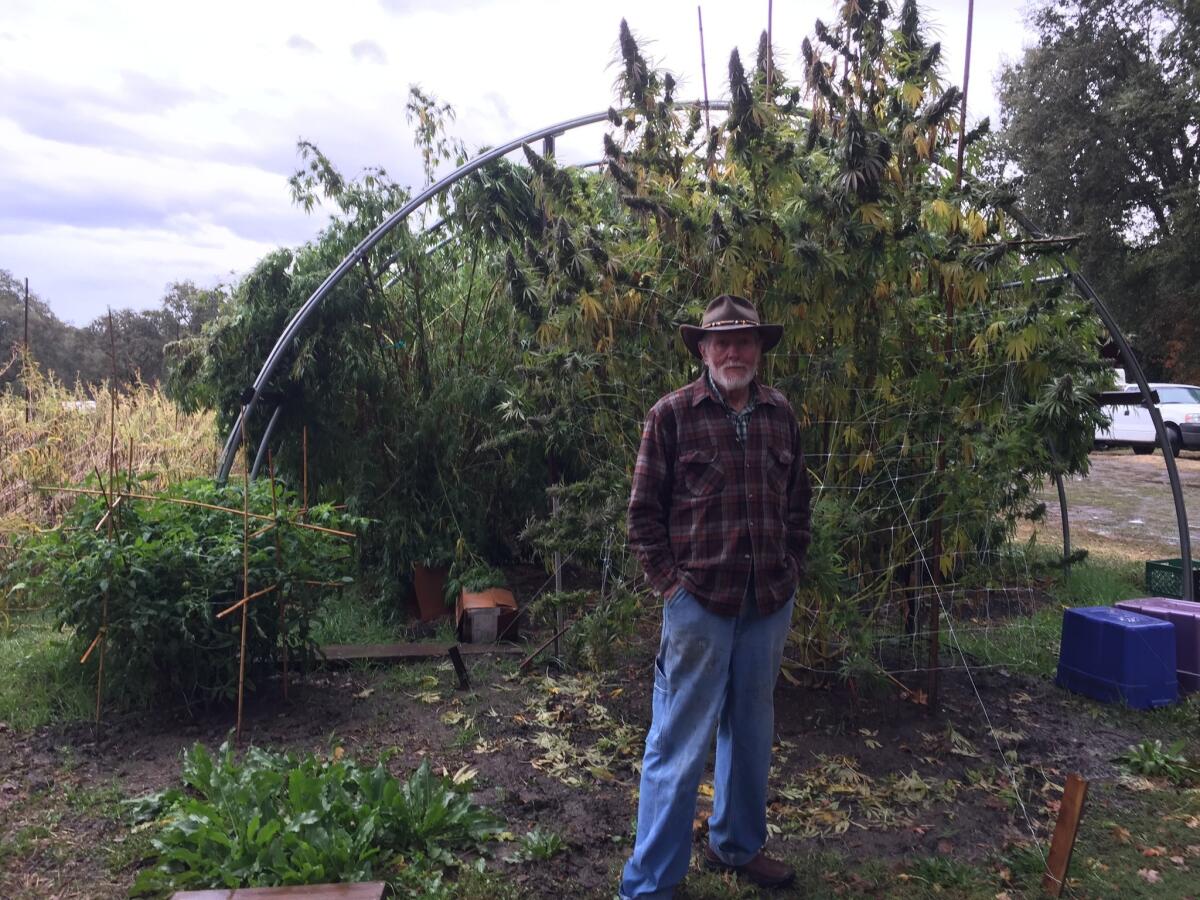These 76-year-old twins have grown pot for decades. Here’s why they oppose legalization
- Share via
Reporting from Covelo, CALIF. — You don’t end up in Round Valley, one of Mendocino County’s finest cannabis-growing micro climates, by accident. It is well northeast of Highway 101, along a winding mountain road that follows the curves of Outlet Creek and the Middle Fork of the Eel River.
After 45 minutes, the valley comes into view. From a lookout called Inspiration Point, even in a light drizzle, Round Valley is a picture of bucolic grace, with wheat-colored fields, black cows and green orchards spreading out below.
For the record:
8:48 a.m. Jan. 23, 2025A previous version of this article said Round Valley is northwest of Highway 101. It is northeast of the highway.
Many of those groves conceal marijuana plants — or trees as they call them around here — which flourish in the rich alluvial soil of the valley’s fertile bottomland.
The highway through the valley is dead straight, punctuated by one town, Covelo, population about 1,200. Just past town, I pulled onto a farm owned by Robert and John Cunnan, identical 76-year-old twins who were born in Glendale and left Southern California more than 40 years ago seeking a better life.

“We came here with the back-to-the-land movement,” Robert told me as we stood in front of a shed where dozens of fragrant cannabis stalks were hanging to dry.
For $6,500, the brothers bought 10 acres with a creek down the middle. They built craftsman-style homes for themselves and raised families on food they grew in their gardens and money earned as cabinet makers for what they call “mom-and-pop” businesses — restaurants, coffee shops and boutiques. They got by, but barely.
“A friend of mine came up here in 1985, grew marijuana and sold it for $2,000 a pound,” Robert said. “And that’s when I thought, ‘You know, you might be able to make a little money doing this.’ ”
This, pretty much, is the very thought that has crossed the minds of untold thousands of Mendocino County residents, beleaguered by the crashing logging and fishing industries, and willing to flout the law to support their families.
“At one time, I sold stuff for $5,000 a pound,” Robert said. “It was worth more than gold. Now, it’s down to $1,200 to $1,500. But cannabis allowed me to finish my house and get comfortable.” (Yields vary wildly, but in these parts, each tree can produce two to four pounds or more.)
“I consider myself a teacher and a woodworker,” said John, who commutes to Ukiah once a week to teach woodworking in two schools. “The cannabis is just to fill in where the teaching and woodworking don’t pay the bills.”

A friend came up here in 1985, grew marijuana and sold it for $2,000 a pound, I thought, ‘You know, you might be able to make a little money doing this.’
— Mendocino County cannabis grower Robert Cunnan
I assumed the Cunnans would be strong proponents of legalizing cannabis for recreational use. As it turns out, they oppose Proposition 64, which would regulate and tax cannabis for the adult market.
And they are not alone.
Many small marijuana farmers, as it happens, see Proposition 64 as a threat to their way of life.
They believe that a legal, regulated cannabis market could open the floodgates to corporatization of the industry, pushing taxes up and prices down, perhaps forcing them out of business altogether.
“The thing you need to realize is that this is a movement that is becoming an industry,” Robert said. “The movement was organic gardening, the back-to-the-land, alternative lifestyle. We were the original generation that came out here and set up our pot gardens.”

Like mom-and-pop businesses squeezed out by big-box retailers, he said, so are pot farmers in danger of being squeezed out of business once big corporations get a toehold in the cannabis business.
Even though Proposition 64 gives small farmers a head start, banning large cultivator licenses for five years, farmers like the Cunnans aren’t especially comforted.
“Of course,” Robert said, “I will vote against it.”
::
After California voters legalized medical cannabis in 1996, Mendocino, among other counties, developed regulations for growers. The rules are convoluted and ever-changing — and enforced by the sheriff — but still, the Cunnans are legally allowed to grow up to 99 plants on their farm, and sell to dispensaries.
Using principles established by the famous horticulturalist Alan Chadwick, who pioneered the organic gardening movement in the U.S. and created a garden here in the early 1970s, the twins grow strains like Chronic Kush, Pink Cadillac and Orange Spice.
They are certified by the Small Farmers Assn., created to help cannabis farmers grow sustainably and to negotiate the often-contradictory thickets of local laws.
On Saturday, we sat in John’s cozy, two-story house, a wood-burning stove blazing in a corner of the living room. The season’s first heavy rains had forced the Cunnans to harvest most of their plants.

In some ways, the fate of Mendocino County’s cannabis industry lies with California’s great population centers to the south, and with voters who may care far more about the social justice implications of legalization, and their own convenience, say, than the preservation of a distant way of life.
The Cunnans, who grew up on a chicken farm, know this. And they are not especially hopeful.
“The only reason I am still riding this marijuana wave is because having worked for mom and pop for 30 years trying to help them survive, I am really curious to see how it all shakes out,” Robert said. “I want to know whether people realize in the end that it’s much better to keep as many small farmers involved as possible because that supports families.”
For more Robin Abcarian columns on Proposition 64 »
Twitter: @AbcarianLAT
ALSO
ClubM, a Birchbox-style service for the pot-smoking set, turns 1 with an L.A. cocktail party







